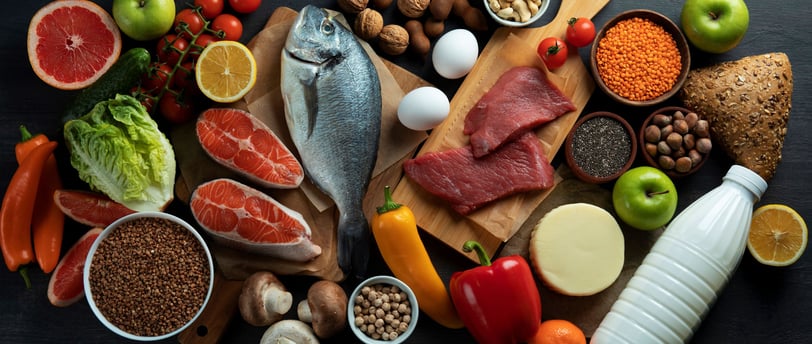Tips for Healthy Eating
Eating a healthy diet is essential for maintaining good health and overall well-being. A well-balanced diet provides the body with the necessary nutrients, vitamins, and minerals it needs to function optimally. It also helps in maintaining a healthy weight and reducing the risk of chronic diseases such as heart disease, diabetes, and certain types of cancer.
12/14/20233 min read


The Importance of a Healthy Diet
Eating a healthy diet is essential for maintaining good health and overall well-being. A well-balanced diet provides the body with the necessary nutrients, vitamins, and minerals it needs to function optimally. It also helps in maintaining a healthy weight and reducing the risk of chronic diseases such as heart disease, diabetes, and certain types of cancer.
Calorie Balance
The key to a healthy diet is to eat the right amount of calories for your level of physical activity. This means balancing the energy you consume with the energy you use. Consuming more calories than your body needs will lead to weight gain, as the excess energy is stored as fat. Conversely, consuming too few calories will result in weight loss.
It is recommended that men consume around 2,500 calories a day (10,500 kilojoules), while women should aim for around 2,000 calories a day (8,400 kilojoules). However, these numbers may vary depending on factors such as age, height, weight, and activity level. It is important to consult with a healthcare professional or a registered dietitian to determine the appropriate calorie intake for your specific needs.
Eating a Variety of Foods
A balanced diet should include a wide range of foods to ensure that your body receives all the necessary nutrients it needs. This includes fruits, vegetables, whole grains, lean proteins, and healthy fats.
Fruits and Vegetables
Fruits and vegetables are rich in vitamins, minerals, and antioxidants that are essential for maintaining good health. Aim to include a variety of colorful fruits and vegetables in your diet to ensure you are getting a wide range of nutrients. These can be consumed fresh, frozen, or even in the form of juices or smoothies.
Whole Grains
Whole grains are a great source of fiber, which helps in digestion and keeps you feeling full for longer. Opt for whole grain bread, pasta, rice, and cereals instead of refined grains to maximize the nutritional value of your meals.
Lean Proteins
Protein is important for building and repairing tissues, as well as for the production of enzymes and hormones. Choose lean sources of protein such as poultry, fish, beans, lentils, tofu, and low-fat dairy products. Limit your intake of red meat and processed meats, as they can be high in saturated fats and sodium.
Healthy Fats
Contrary to popular belief, not all fats are bad for you. Healthy fats, such as those found in avocados, nuts, seeds, and olive oil, are essential for brain function, hormone production, and the absorption of fat-soluble vitamins. However, it is important to consume these fats in moderation, as they are high in calories.
Portion Control
In addition to eating a variety of foods, portion control is also crucial for maintaining a healthy diet. It is easy to overeat, especially when faced with large portion sizes or when eating out at restaurants. To avoid consuming excess calories, try the following tips:
Use smaller plates and bowls to help control portion sizes.
Read food labels to understand the serving sizes and nutrient content.
Listen to your body's hunger and fullness cues. Stop eating when you feel satisfied, not overly full.
Avoid eating in front of the TV or while distracted, as this can lead to mindless eating.
Meal Planning and Preparation
Meal planning and preparation can help you make healthier choices and avoid relying on unhealthy convenience foods. Here are some tips to make meal planning easier:
Set aside time each week to plan your meals and create a shopping list.
Include a variety of foods from different food groups in your meal plan.
Prep ingredients in advance, such as chopping vegetables or marinating meats, to save time during the week.
Cook larger batches of meals and freeze leftovers for quick and easy meals on busy days.
Experiment with new recipes and flavors to keep your meals interesting and enjoyable.
Hydration
Staying hydrated is an important part of maintaining a healthy diet. Water is the best choice for hydration, but other beverages such as herbal teas, unsweetened coffee, and low-fat milk can also contribute to your fluid intake. Avoid sugary drinks such as soda and fruit juices, as they are high in added sugars and calories.
Conclusion
In conclusion, maintaining a healthy diet is essential for overall health and well-being. By following these practical tips, you can make healthier choices and ensure that your body is receiving the nutrients it needs. Remember to consult with a healthcare professional or a registered dietitian to determine the appropriate calorie intake and dietary recommendations for your specific needs.
